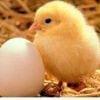Explore all the information on
Poultry egg quality
Egg quality defines those characteristics of an egg that affect consumer acceptability and preference. Components of quality include shell quality and interior egg quality for shell eggs, and interior egg quality for further processed eggs. The quality of the egg once it is laid cannot be improved. Hence, its maintenance is mostly a preventive process. Egg quality is influenced by several factors including rearing, temperature, humidity, handling, storage, and egg age. Shell quality: There are five major classes of shell defects: integrity, texture, shape, color, and cleanliness. Internal egg quality involves functional, aesthetic and microbiological properties of the egg yolk and albumen. The proportions of components for fresh egg are 32% yolk, 58% albumen and 10% shell. Regarding exterior egg quality, the shell of each egg should be smooth, clean and free of cracks. The eggs should be uniform in colour, size and shape.
1National Engineering Laboratory for Animal Breeding and MOA Key Laboratory of Animal Genetics and Breeding, Department of Animal Genetics and Breeding, China Agricultural University, Beijing, China, 2Institute of Animal Genetics and Breeding, College of Animal Science and Technology, Sichuan Agricultural University, Ya’an, China, 3Department of Cellular and Molecular Medicine, University of Ottawa, Ottawa,...
Comments : 0
Recommendations: 0
Eggshell translucency is the appearance of lighter coloured regions of the shell visible when an egg is viewed over a light source. Some research has been conducted into the causes of translucency in the past but there has been little work recently and the cause of translucency remains uncertain. This study aimed to identify the structural cause of eggshell translucency and determine if translucency correlates with bacterial penetration of eggs. ...
Comments : 1
Recommendations: 0
There are many factors that affect the overall quality of the egg shell, but before discussing these factors, it is important to know what makes up the structure of the egg shell. The egg shell consists of about 94 to 97% calcium carbonate. The other three percent is organic matter and egg shell pigment. There are also as many as 8,000 microscopic pores in the shell itself. The outer coating of the shell itself consists of a mucous coating called the cuticle or...
Comments : 29
Recommendations: 0
Does the weight of birds affect the egg size ...
Comments : 0
Recommendations: 0
...
Comments : 0
Recommendations: 0
...
Comments : 0
Recommendations: 0
This study is an update of data presented previously (Roberts & Chousalkar, 2012) from a study which investigated egg quality at different stages of lay. Although eggs produced in Australia are considered medium to low risk for food borne illness, the egg industry in Australia is periodically implicated in cases of food poisoning. Egg shell defects may potentiate the movement of bacteria into the egg. Two egg shell characteristics were targeted: the extent of cuticle...
Comments : 1
Recommendations: 0
I. INTRODUCTION Food borne illness costs Australia an estimated $1.2 billion per year (Hall et al., 2005). The annual report of the OzFoodnet network (2009) reported 9,533 cases of Salmonella infection. Although the eggs produced in Australia are of good quality, the egg industry is often blamed for cases of food poisoning due to Salmonellosis. Salmonellosis can be acquired by the ingestion of raw or undercooked eggs. As well, cross contamination...
Comments : 0
Recommendations: 0
ABSTRACT This study was conducted to determine the effects of organic and inorganic chromium (Cr) supplementation on performance parameters, eggshell quality and some serum parameters of laying Pharaoh quails (Coturnix coturnix Pharaoh). Laying quails(n: 360; 59 days old) were randomly divided into three experimental groups each including 120 birds. Basal diet applied to control group was based on corn-soybean meal without additional organic or...
Comments : 4
Recommendations: 0
Usually only chicken eggs are sold in general grocery stores. Some specialty stores, such as health food stores, may sell duck and/or quail eggs as well. Turkey and goose eggs are rarely sold for human consumption. Brown and white shelled eggs are available on the market. They are nutritionally the same. Since brown egg layers are slightly larger birds and require more feed, the price of brown eggs is generally higher than that of white eggs. Meeting consumer demands is a constant...
Comments : 1
Recommendations: 0
It is in the best interest of poultry breeders to obtain as many top quality eggs as possible from each hen. Egg quality can be influenced by nutritional variables such as diet composition, electrolyte ratio and the content and composition of amino acids in the diet. Similarly, egg shell quality is of great interest to egg producers and poultry breeders. Reductions in egg shell quality are associated with economic losses. It is estimated that losses caused by poor shell quality range from 6 to...
Comments : 1
Recommendations: 0
hi all i have one big concern on using of formalin for egg fumigation and this is danger for the persons working with egg fumigation so can you advice me on using other than formalin. our company is interested in importing from any country available?
Thanks
Dr. Fikre...
Comments : 0
Recommendations: 0
Introduction
For more than two decades, public health authorities throughout the world have reported the transmission of Salmonella enterica serovar Enteritidis ( S. Enteritidis) to consumers of contaminated eggs produced by infected hens (Greig & Ravel, 2009). For example, epidemiological calculations in the United States have attributed more than 100,000 annual illnesses to...
Comments : 5
Recommendations: 0
.jpg&w=3840&q=75)

PHYTOCEE™ Natural Defence Enhancer for poultry - Natural Remedies
Suggested link
ABSTRACT A study was carried out in the department of Poultry Science, Kerala Veterinary and Animal Sciences University to determine the egg qualities of farm fresh kuttanad and white pekin duck eggs in comparison with eggs collected from various shops in and around Thrissur district, Kerala. A total of 42 eggs were Subjected to evaluate the internal and external quality parameters. The results revealed that there is no...
Comments : 1
Recommendations: 0
Good morning, we have approximately 2000 eggs and I have a question regarding the disinfectant or detergent used for cleaning eggs for sale, as well as the different systems that I can implement to do so...In fact, I´m more worried about disinfection than cleaning. Any advice? ...
Comments : 0
Recommendations: 0
My hens lay eggs and then eat them. What could be the cause of this behaviour? ...
Comments : 11
Recommendations: 0
Was hen born first or chicks? It may be very common question,and scientists remained in a puzzle for many years about solving this question. Now a new research revealed that there is a protein in egg shell which is found only in reproductive system of hens. From this it proves that hen was born first and then egg (the presence of protein in eggshell) proves it. This is a very interesting topic and i want to know the opinion of all of you about this.and it wil be my honor to get benefit...
Comments : 1
Recommendations: 0
Dear colleagues, greetings!
What is the cause of cooked eggs in Layer breeder at the age of 55 week followed by acute peritonitis? Also some individual case of watery cyst at the region of cloaca why is it so? ...
Comments : 0
Recommendations: 0
Shifts in hen diet, breeding may be factors
By Nanci Hellmich USA TODAY
Eggs have taken a beating for years because they are high in dietary cholesterol, but a new study shows that eggs today contain a lot less cholesterol than they did a decade ago.
A large egg has about 185 milligrams of cholesterol, down from 215 milligrams,...
Comments : 1
Recommendations: 0




.jpg&w=3840&q=75)


.jpg&w=3840&q=75)





.jpg&w=3840&q=75)














